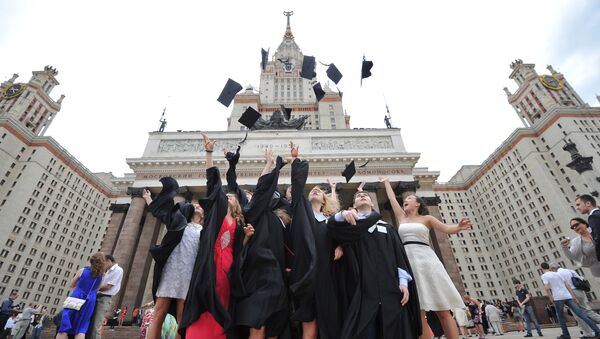Brought to you by the National Research Nuclear University MEPhI
How realistic is this program? What are the modern global trends in university education? Professor Weifang Min, member of the Project 5-100 international expert council, Executive President of the Chinese Society for Education Development Strategies and Director and Professor of the Institute of Economics of Education, Peking University, China, spoke about this with a correspondent from Rossiya Segodnya’s Social Navigator Project.
Question: Dr Min, which global trends in the development of universities and higher education do you believe to be the most significant today?
Weifang Min: Since the beginning of the 21st century, the development of higher education in the world’s biggest countries has been marked by expansion of enrollment and massification, which has led to a diversification and differentiation of higher education institutions.
As part of their national development strategy, many countries have chosen the policy of selecting some of their major universities and providing them with support in order to transform them into world-class universities that offer excellent training in academic disciplines as well as to increase their competitiveness in the international community.
For example, while the US and the UK have continued their standard efforts to advance their universities, many other countries, such as Japan, Germany, China and Russia, have started new projects in this field. Many countries have begun building world-class universities as a key component of their national innovation system, to cultivate talents and generate first-class research achievements.
Question: What kind of changes and reforms are required for a university to be named the best in the world or to join the best schools in clusters known as the “elite 10” or “top 100”?
Weifang Min: Universities need structural reforms, such as streamlining administration, guaranteeing academic freedom, balancing the authority of the management and academics, nurturing a proactive academic environment, providing sufficient incentives for attracting the top professors from around the world and also for the existing faculty’s professional growth.
It is also vital to give universities more autonomy while improving their managerial capacity and keeping them accountable. Governments continue to invest in universities while universities should generate multiple sources of financing.
Question: What are the factors that the success of some universities in the Rankings is closely linked to?
Weifang Min: The leading scholars with world-wide academic reputation, first class research accomplishments, successful graduates and high-level services that promote national and regional economic and social development.
Question: Can international experience (specifically, British) in transforming higher education be used in and adapted to Russia?
Weifang Min: Russia can definitely learn from the international experience of other countries, but it shouldn’t copy any other countries’ higher education development model, because Russia’s historical, cultural and institutional context is different from other countries.
Question: The Bologna Declaration actually provides for the creation of a single European Higher Education Area. Does Russia’s participation in the Bologna Process mean that the main goal of transforming university education in Russia will be the integration and creation of a “European” education system model?
Weifang Min: No, it doesn’t. Russia could participate in the process, but it should keep its own cultural identity and a higher education system with Russian characteristics.
Question: One of the Project 5-100 goals is to bring at least five Russian universities in the top-100 best universities on the basis of the world's leading university rankings by 2020. How realistic do you believe this goal is?
Weifang Min: It is possible, but it is essential to continue supporting the universities involved in this project.
Question: What are the advantages and strengths of Russian universities?
Weifang Min: Russian universities have a glorious history and a solid academic foundation, but they need structural reforms, more support and broader international exchanges and cooperation.
Question: How attractive is Russian education to foreigners today?
Weifang Min: Very attractive, at least to Chinese young people, but the language is a major barrier.
Question: How has Project 5-100 impacted on Russian universities?
Weifang Min: The project has raised the academic level of some Russian universities significantly. It has made a big difference in enhancing the appeal and increasing the attractiveness of some Russian universities for foreigners.
Question: Do you feel that there is any need to extend the project’s deadlines (to 2025, for example)? Or should the number of participating universities be increased (to 30, for example)?
Weifang Min: Building world-class universities is a long-term effort. The project should be extended to 2030. Since Russia is a large country, it needs more world-class universities. Therefore, the number of universities participating in the project should increase to at least 30. Russia should have a more ambitious higher education development program.
I wish Russia every success in developing its higher education.




